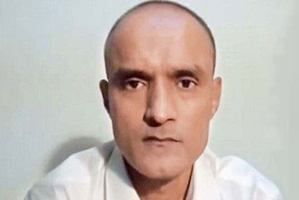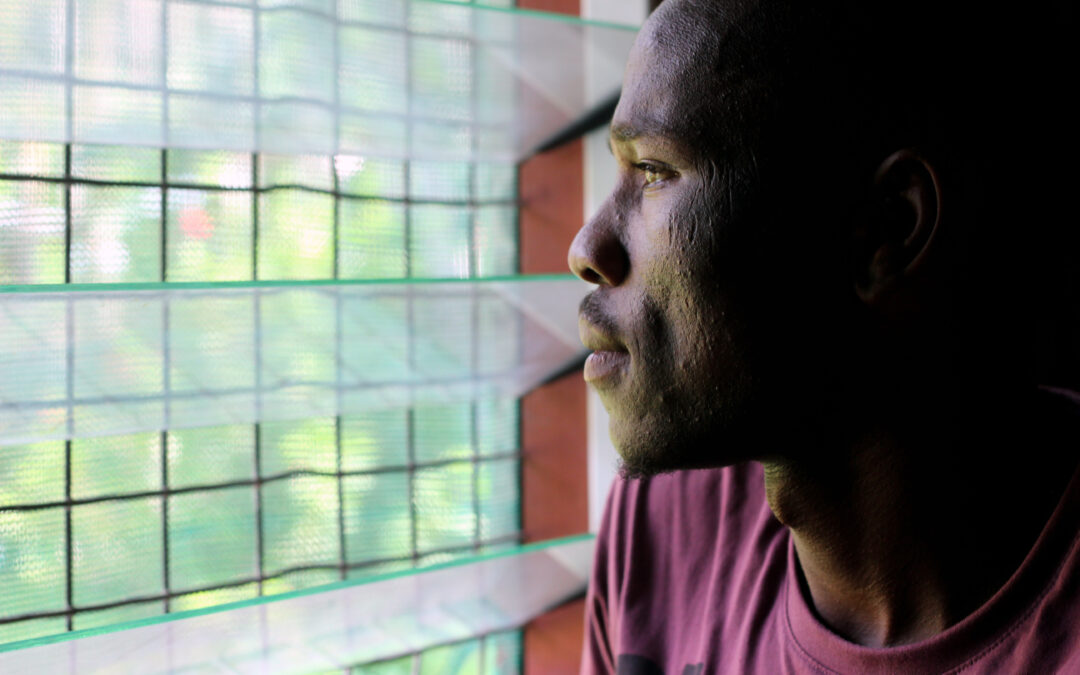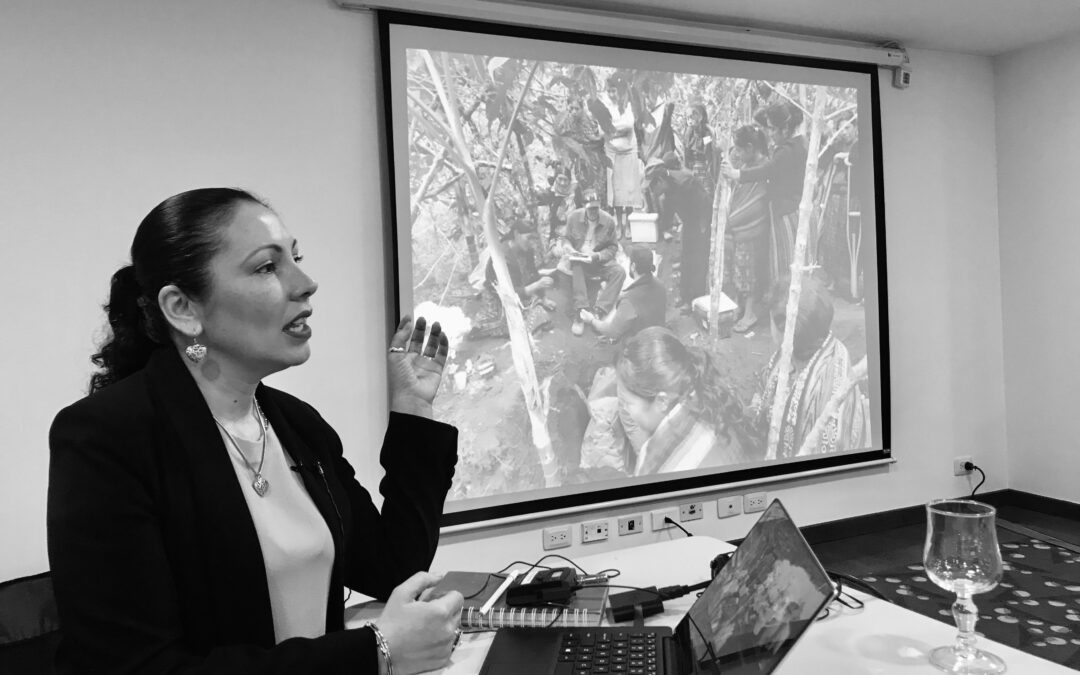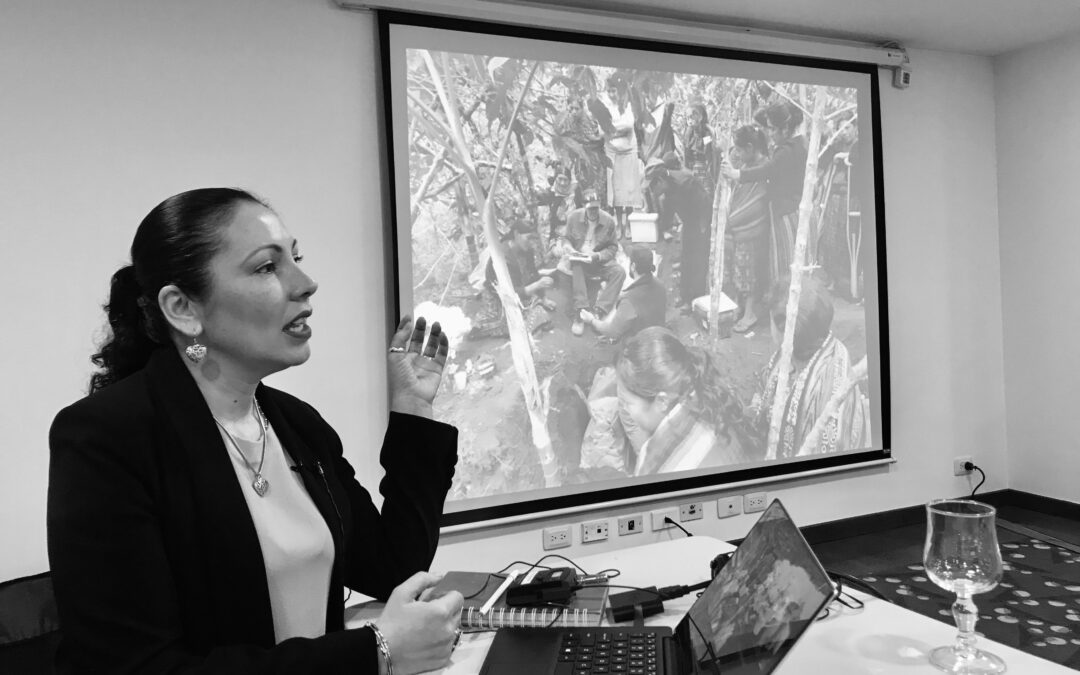
Feb 15, 2019 | News
The International Court of Justice will hold public oral hearings in India v. Pakistan (Jadhav case) from 18 to 21 February 2019. Before they commence, the International Commission of Jurists (ICJ) has published a briefing paper to clarify the key issues and relevant laws raised in the case in a Question and Answer format.
The case concerns Pakistan’s failure to allow for consular access to an Indian national, Kulbhushan Sudhir Jadhav, detained and convicted by a Pakistani military court on charges of “espionage and sabotage activities against Pakistan.”
India has alleged that denial of consular access breaches Pakistan’s obligations under Article 36(1) of the Vienna Convention on Consular Relations (VCCR), to which both States are parties.
Pakistan has argued, among other things, that the VCCR is not applicable to spies or “terrorists” due to the inherent nature of the offences of espionage and terrorism, and that a bilateral agreement on consular access, signed by India and Pakistan in 2008, overrides the obligations under the VCCR.
ICJ’s Q&A discusses the relevant facts and international standards related to the case, including: India’s allegations against Pakistan; Pakistan’s response to the allegations; the applicable laws; and the relief the International Court of Justice can order in such cases.
Contact:
Frederick Rawski (Bangkok), ICJ Asia Pacific Regional Director, e: frederick.rawski(a)icj.org
Reema Omer (London), ICJ International Legal Adviser, South Asia t: +447889565691; e: reema.omer(a)icj.org
Additional information
While the case at issue is limited to denial of consular access under the VCCR, it engages other critical fair trial concerns that arise in military trials in Pakistan.
The International Commission of Jurists has documented how Pakistani military courts are not independent and the proceedings before them fall far short of national and international fair trial standards. Judges of military courts are part of the executive branch of the State and continue to be subjected to military command; the right to appeal to civilian courts is not available; the right to a public hearing is not guaranteed; and a duly reasoned, written judgment, including the essential findings, evidence and legal reasoning, is denied.
The case also underscores one of inherent problems of the death penalty: that fair trial violations that lead to the execution of a person are inherently irreparable.
Download the Q&A:
Pakistan-Jadhav case Q&A-Advocacy-Analysis brief-2019-ENG

Feb 13, 2019 | Multimedia items, News, Video clips
Sudanese refugee activist Abdul Aziz Muhamat is the 2019 Martin Ennals Award Laureate. He was among three finalists, selected last October by a jury of ten of the world’s leading human rights organizations, including the ICJ, together with Marino Cordoba Berrio (Colombia) and Eren Keskin (Turkey).
“This award sheds light on the very cruel refugee policy of the Australian Government. It also brings international attention to the dangers and ill-treatment faced by refugees all over the world, including in countries that claim they uphold the Refugee Convention,” said Abdul Aziz Muhamat.
The 2019 laureate was fleeing war in Darfour. In October 2013, he was forcibly transferred to the island of Manus (Papua New Guinea), as part of Australia’s “offshore” refugee policy, when the boat he was on was intercepted by the authorities.
More than five years on, he is still stranded on the island, like hundreds of refugees and asylum seekers, and subject to deprivation, harassment, humiliation and violence.
“This young man was only 20 when he first arrived on Manus island. Since then, he never stopped raising his voice for those who have been stripped of their most basic rights together with him. He showed extraordinary tenacity and courage, always resisting peacefully even after a police officer shot him in the leg,” said Dick Oosting, Chair of the Martin Ennals Foundation.
“The Australian Government must meet its international obligations and put an end to these inhumane practices,” he added.
Living conditions on Manus island have been denounced by human rights organizations.
“Men are dying, notably for lack of appropriate medical care. Some of them, including children, committed suicide. We need safety, we need freedom, we need hope. Opposing this cruel system helps preserve my self-esteem and my human dignity,” Abdul Aziz Muhamat said.
“I will continue to fight until all of us are safe and free,” he added.
The two other finalists of the 2019 Martin Ennals Award are Eren Kerskin (Turkey) and Marino Cordoba Berrio (Colombia).
A lawyer who has been engaged for over 30 years in advancing the rights of women, Kurds and LGBTI+ notably, Eren Kerskin was recently sentenced to twelve and a half years in prison for supporting the shuttered pro-Kurdish newspaper Özgür Gündem.
She has been accused of denigrating the Nation and insulting the President in her chronicles.
“Freedom of expression and freedom of thought are severely punished in Turkey nowadays. The government tolerates no dissenting voices. I know that by resisting we can change the world. Thank you for not forgetting us. Your solidarity and support give me the courage to continue the struggle,” she said.
Marino Cordoba Berrio is a leading figure within the Afro-Colombian community, which has been repeatedly stripped of its rights and lands.
For two decades, he has been struggling for the rights of his ethnic and other marginalized groups, at the risk of his own life in a country where more than 400 social leaders and human rights defenders have been killed in the past two years.
“Historically, we have suffered from political, economic and social exclusion. To seek and obtain justice for my people is crucial for our survival,” he said.
“Under the peace agreement and thanks to our efforts, ethnic groups’ rights are recognized and so is the need to protect them. It’s high time for the government of Colombia to meet its commitments and put an end to the escalating violence affecting our communities,” he added.
The Martin Ennals Award for human rights defenders is given out since 1994. It honours individuals who have shown outstanding commitment to the promotion and protection of human rights, despite the risks involved.
This award aims at shedding light on their situation and their work. It provides them with international recognition and protection, as well as financial support to pursue their activities.
The three finalists were honoured today during a ceremony organized by the City of Geneva.
The jury of the Martin Ennals Award comprises ten of the world’s leading human rights organizations: the ICJ, Human Rights Watch, Amnesty International, FIDH, Human Rights First, International Service For Human Rights, Brot für die Welt, Front Line Defenders, the World Organization Against Torture and HURIDOCS.
Contact:
Olivier van Bogaert, Director Media & Communications, ICJ representative in the MEA Jury, t: +41 22 979 38 08 ; e: olivier.vanbogaert(a)icj.org
Watch video of MEA Laureate 2019:
Watch the whole MEA 2019 Ceremony in Geneva:

Feb 12, 2019 | News
Today in Bogotá, Colombia, ICJ and its partners launched a new 30-month project under the ICJ’s Global Accountability Initiative entitled, Promoting justice for extrajudicial killings and enforced disappearances in Colombia, Guatemala and Peru.
The aim of the project is to promote the accountability of perpetrators and access to effective remedies and reparation for victims and their families in cases of extrajudicial killings and enforced disappearances in Colombia, Guatemala and Peru – and Latin America more broadly – through effective, accountable and inclusive laws, institutions and practices that also reduce the risk of future violations
The ICJ’s partners include the Asociacion de Familiares de Detenidos-Desaparecidos de Guatemala (FAMDEGUA), Asociación Red de defensores y defensoras de derechos humanos (dhColombia), Equipo Argentino de Antropología Forense (EAAF), Equipo Peruano de Antropología Forense (EPAF), Fundación de Antropología Forense de Guatemala (FAFG), and the Instituto de Defensa Legal (IDL).
Christof Heyns, Director of the Institute for International and Comparative Law in Africa and Professor of Human Rights Law at the University of Pretoria – and a former Special Rapporteur on extrajudicial, summary or arbitrary executions – also joins the project as special adviser.
In carrying out the project the ICJ will conduct general studies on obstacles to impunity in Colombia, Guatemala and Peru, as well as specific documentation of emblematic cases of serious human rights violations. The ICJ will also produce a practitioners’ guide for use by civil society, victims and their representatives on the investigation and prosecution of potentially unlawful death, and a regional guide for forensic experts on the investigation and prosecution of potentially unlawful death. In connection with the project the IJC intends to conduct strategic litigation, trial observations and capacity building activities involving judges, prosecutors, investigators, lawyers, civil society, victim groups and forensic experts.
The project is supported by the EU European Instrument for Democracy and Human Rights (EIDHR).
Contacts:
Kingsley Abbott, Senior Legal Adviser & Coordinator of the ICJ’s Global Accountability Initiative, email: kingsley.abbott(a)icj.org
Rocío Quintero, Legal Adviser, Latin America, email: rocio.quintero(a)icj.org

Feb 12, 2019 | Comunicados de prensa, Noticias
Según comienza el juicio a los doce líderes separatistas catalanes ante el Tribunal Supremo de España hoy en Madrid, la CIJ advierte que el juicio en base a la amplia definición de delitos como la rebelión y, posiblemente, la sedición restringen excesivamente los derechos a la libertad expresión, asamblea y asociación.
Los doce líderes políticos – incluyendo altos cargos del Gobierno catalán – han sido acusados en conexión a su participación en un referéndum sobre la independencia de Cataluña que tuvo lugar el 1 de octubre de 2017. Este referéndum se llevó a cabo a pesar de haber sido declarado ilegal por el Tribunal Constitucional.
El proceso de votación durante el referéndum fue parcialmente reprimido por la policía, según informes fidedignos de uso innecesario y desproporcionado de la fuerza suponiendo una violación de las obligaciones de derecho internacional de España.
A la CIJ le preocupa que la Fiscalía, y el Tribunal Supremo, admitiendo la imputación en el caso, han atribuido un significado excesivamente amplio al delito de rebelión bajo el artículo 472 del Código Penal. Según este artículo, el delito requiere de una insurrección violenta para derogar, suspender o modificar el orden constitucional.
Sin embargo, no se acusa a los organizadores del referéndum de utilizar o fomentar la violencia. Se les está juzgando en base a que deberían haber previsto el riesgo de intervención y uso de la fuerza por parte de la policía.
Por lo tanto, se presume que los acusados son penalmente responsables de la violencia que resultó de su decisión de seguir adelante con el referéndum, a pesar de haber sido declarado ilegal.
“La muy amplia definición del delito de rebelión que se está aplicando en este caso amenaza con interferir de forma innecesaria y desproporcionada con los derechos a la libertad expresión, asamblea y asociación,” dijo Róisín Pillay, Directora de la CIJ para Europa y Asia Central.
“La interferencia con la protesta y expresión política pacífica debe estar justificada como estrictamente necesaria y proporcionada según el derecho internacional de los derechos humanos. Cuando manifestaciones pacíficas o acciones políticas, aunque hayan sido declaradas como ilegales por las autoridades, provocan una respuesta excesiva de la policía, lo únicos responsables por el uso de la violencia son la policía y otras autoridades estatales”.
“Es crucial que el Tribunal Supremo, en su consideración de estos cargos, tome plenamente en cuenta las obligaciones de España bajo el derecho internacional de los derechos humanos,” añadió.
A pesar de que el Tribunal Supremo ha sostenido que el uso de la fuerza de las autoridades policiales durante la represión del referéndum del 1 de octubre de 2017 fue “legítima y, por tanto proporcionada”, observadores internacionales han concluido que dicho uso de la fuerza fue excesiva y desproporcionada.
De acuerdo con el derecho internacional de los derechos humanos, el mero hecho de que el uso de la fuerza sea considerado legal bajo la legislación nacional, no significa que por sí mismo pueda ser considerado como necesario o proporcionado.
El Tribunal Supremo ha aceptado también que, si los supuestos presentados por la Fiscalía son probados, podría incluirse el delito de sedición, el cual es cometido por aquellos que se alcen pública y tumultuariamente por la fuerza o fuera de las vías legales, para impedir la aplicación de las leyes y resoluciones gubernativas y judiciales.
“Delitos como sedición o rebelión definidos de una manera ambigua y amplia pueden suponer una violación del principio de legalidad, así como una interferencia arbitraria y desproporcionada con los derechos humanos,” dijo Róisín Pillay.
“En un caso altamente sensible y politizado, tal y como es el referéndum catalán, podría sentar un peligroso precedente de persecución a movimientos pacíficos de independencia y disidencia política, no sólo en España sino a nivel internacional,” añadió.
Varios de los acusados han sido retenidos en prisión preventiva durante largos periodos de tiempo, agravando aún más la interferencia con los derechos a la libertad de expresión, asociación y asamblea, y poniendo en duda la proporcionalidad de la respuesta.
Antecedentes
Las doce personas que están siendo juzgadas en conexión con el referéndum de Octubre de 2017: Oriol Junqueras, ex-vicepresidente de la Generalitat catalana; Carme Forcadell, ex-presidenta del Parlament catalán; ocho ex-consejeros del Gobierno catalán – Jordi Turull, Raül Romeva, Joaquim Forn, Santi Vila, Meritxel Borràs, Dolors Bassa, Josep Rull, Carles Mundó -; Jordi Sànchez, ex-líder de la Asamblea Nacional Catalana (ANC), y Jordi Cuixart, ex-líder de la organización independentista Òmnium Cultural.
El juicio, que comienza el 12 de febrero en el Tribunal Supremo de Madrid, se espera que dure varios meses.
España tiene obligación de proteger la libertad de expresión, incluyendo la expresión política, bajo el artículo 10 de la Convención Europea de Derechos Humanos (ECHR, por sus siglas en inglés) y el artículo 19 del Pacto Internacional de Derechos Civiles y Políticos (ICCPR, por sus siglas en inglés), y la libertad de asamblea y asociación pacíficas bajo el artículo 11 de ECHR y los artículos 21 y 22 de ICCPR. El Comentario General sobre libertad de expresión del Comité de Derechos Humanos afirma que Los Estados partes deben procurar con el mayor cuidado que las leyes sobre traición y las disposiciones similares que se refieren a la seguridad nacional, tanto si se califican de leyes sobre secretos de Estado o sobre sedición, o de otra manera, estén redactadas y se apliquen de conformidad con las condiciones estrictas del párrafo 3 del artículo 19 del ICCPR, lo cual requiere que las restricciones en la libertad de expresión estén legisladas y que sean necesarias en base a propósito legítimo, como la seguridad nacional o el orden público. El derecho a participar en la vida pública está protegido bajo el artículo 25 de ICCPR.

Feb 12, 2019 | Artículos, Noticias
Hoy en Bogotá, Colombia, la CIJ, junto con sus socios en la región, lanzaron el proyecto “Promoviendo justicia para ejecuciones extrajudiciales y desapariciones forzadas en Colombia, Guatemala y Perú”, en el marco de la Iniciativa de Responsabilidad Global de la CIJ.
El objetivo del proyecto es promover la rendición de cuentas y el acceso a recursos efectivos y medidas de reparación para las víctimas y sus familias, en casos de ejecuciones extrajudiciales y desapariciones forzadas en Colombia, Guatemala y Perú.
Este proyecto se implementa en conjunto con la Asociación Red de Defensores y Defensoras de Derechos Humanos de Colombia (dhColombia), el Equipo Argentino de Antropología Forense (EAAF), la Asociación de Familiares de Detenidos-Desaparecidos de Guatemala (FAMDEGUA), el Equipo Peruano de Antropología Forense (EPAF), la Fundación de Antropología Forense de Guatemala (FAFG), y el Instituto de Defensa Legal de Perú (IDL).
Además, Christof Heyns, director del Instituto de Derecho Internacional y Comparado en África de la Universidad de Pretoria, y ex Relator Especial sobre ejecuciones extrajudiciales, sumarias o arbitrarias, se une al proyecto como asesor especial.
En el marco de este proyecto, se realizarán estudios generales sobre los obstáculos existentes para la investigación y judicialización de estas graves violaciones a los derechos humanos en Colombia, Guatemala y Perú, y se documentarán casos emblemáticos de las violaciones ocurridas en dichos países. También, se producirá una guía para uso de la sociedad civil, las víctimas y sus representantes, sobre la investigación y el enjuiciamiento de muertes potencialmente ilegales; y se elaborará una guía para expertos forenses sobre la investigación de estas graves violaciones. Adicionalmente, se realizarán litigios estratégicos y observaciones de audiencias, así como actividades de capacitación que involucren a jueces, fiscales, investigadores, abogados, grupos de víctimas y expertos forenses.
El proyecto cuenta con el apoyo del Instrumento Europeo para la Democracia y los Derechos Humanos (IEDDH).
Contactos:
Kingsley Abbott, asesor legal senior y coordinador de la iniciativa global de rendición de cuentas de la CIJ. Correo electrónico: kingsley.abbott(a)icj.org
Rocío Quintero M, asesora legal, América Latina. Correo electrónico: rocio.quintero(a)icj.org








